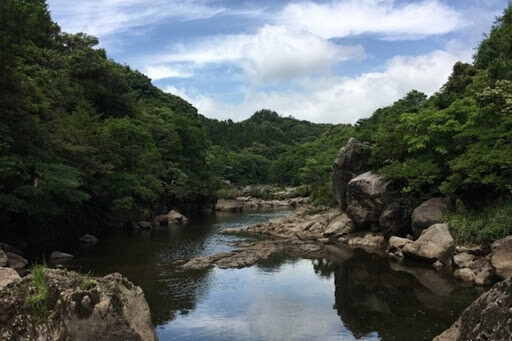
Jeju City, South Korea – Jeju Island is set to embark on a comprehensive plan for the Cheonmi Stream, the island's largest river, following its designation as South Korea's first national river. The plan, which will span two years from this month to December 2026, aims to establish a robust framework for the management and conservation of this vital waterway.
The Cheonmi Stream, which has been a focus of national river designation efforts since 2009, was finally granted this status by the Ministry of Environment in December 2022. As a result, the lower 11.33 kilometers of the stream will be managed as a national river starting from January 2025.
The upcoming comprehensive plan will encompass a wide range of initiatives, including:
Flood prevention strategies: Developing a comprehensive plan to mitigate the risks of flooding, particularly in light of the stream's role as a major waterway in the region.
River construction projects: Implementing necessary infrastructure projects to improve the stream's functionality and ecological health.
Nature-friendly development: Promoting the creation of a river environment that is both sustainable and aesthetically pleasing.
A key aspect of this plan will be the division of the stream into distinct zones based on its unique characteristics. These zones will include areas designated for conservation, restoration, and public use, ensuring a balanced approach to management.
In preparation for this comprehensive plan, the Jeju provincial government initiated the development of a river basin water resources management plan in October 2022. This 10-year plan, which takes into account water supply, flood control, and river environment, will provide a broader framework for the management of water resources on the island and will be closely linked to the comprehensive plan for the Cheonmi Stream.
Furthermore, the provincial government has requested the Ministry of Environment to install 10 water level monitoring stations across the island, considering the region's unique rainfall patterns, topography, and geology. These stations will collect crucial data on rainfall, water levels, and flow rates, enabling more accurate flood forecasting and prevention.
Kang Dong-won, the head of Jeju's Safety and Health Department, emphasized the importance of this comprehensive plan, stating, "As the foundation for river management, the comprehensive plan must be developed in a systematic and timely manner. We will expedite the development of comprehensive plans for both the Cheonmi Stream, a national river, and the adjacent Jinpyeong Stream, and work closely with the Ministry of Environment to install flood prevention facilities."
[Copyright (c) Global Economic Times. All Rights Reserved.]




























